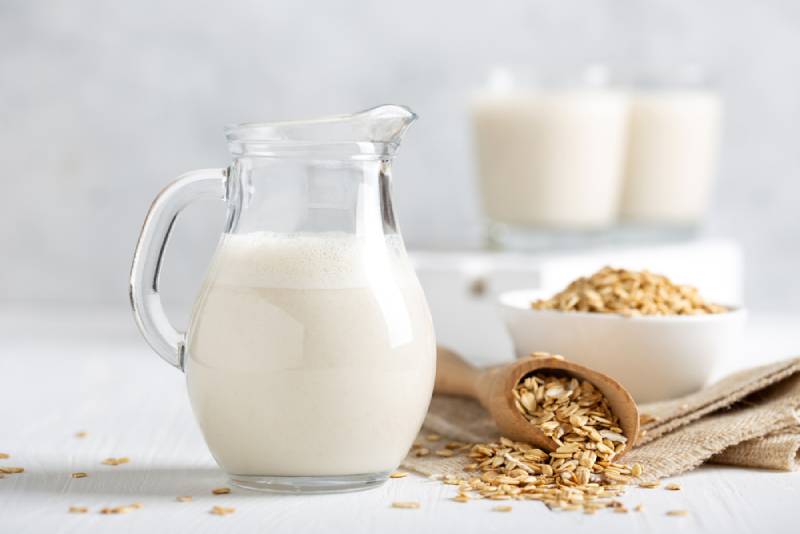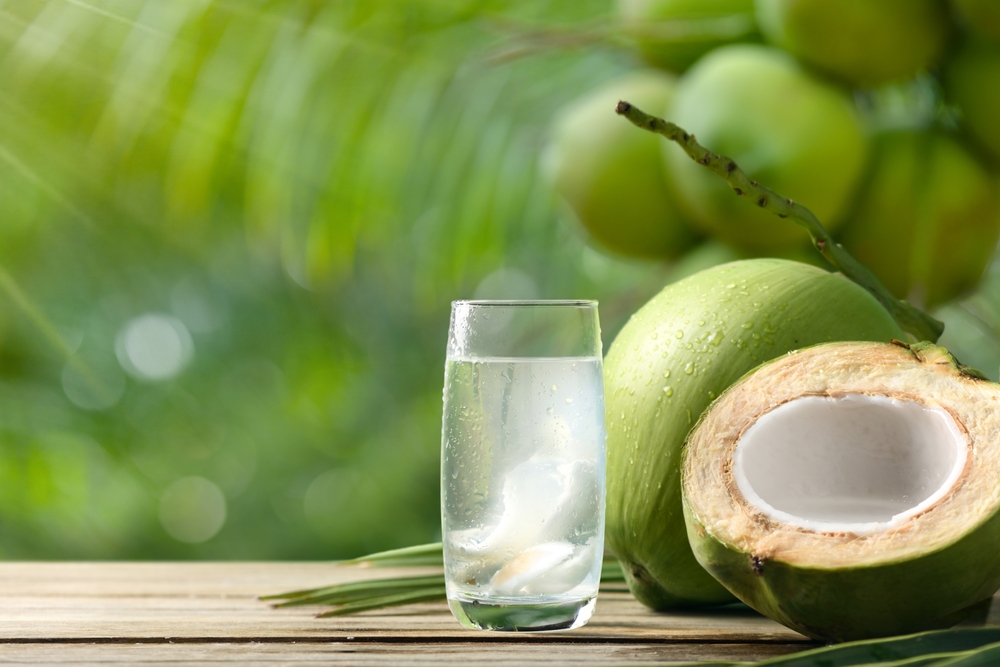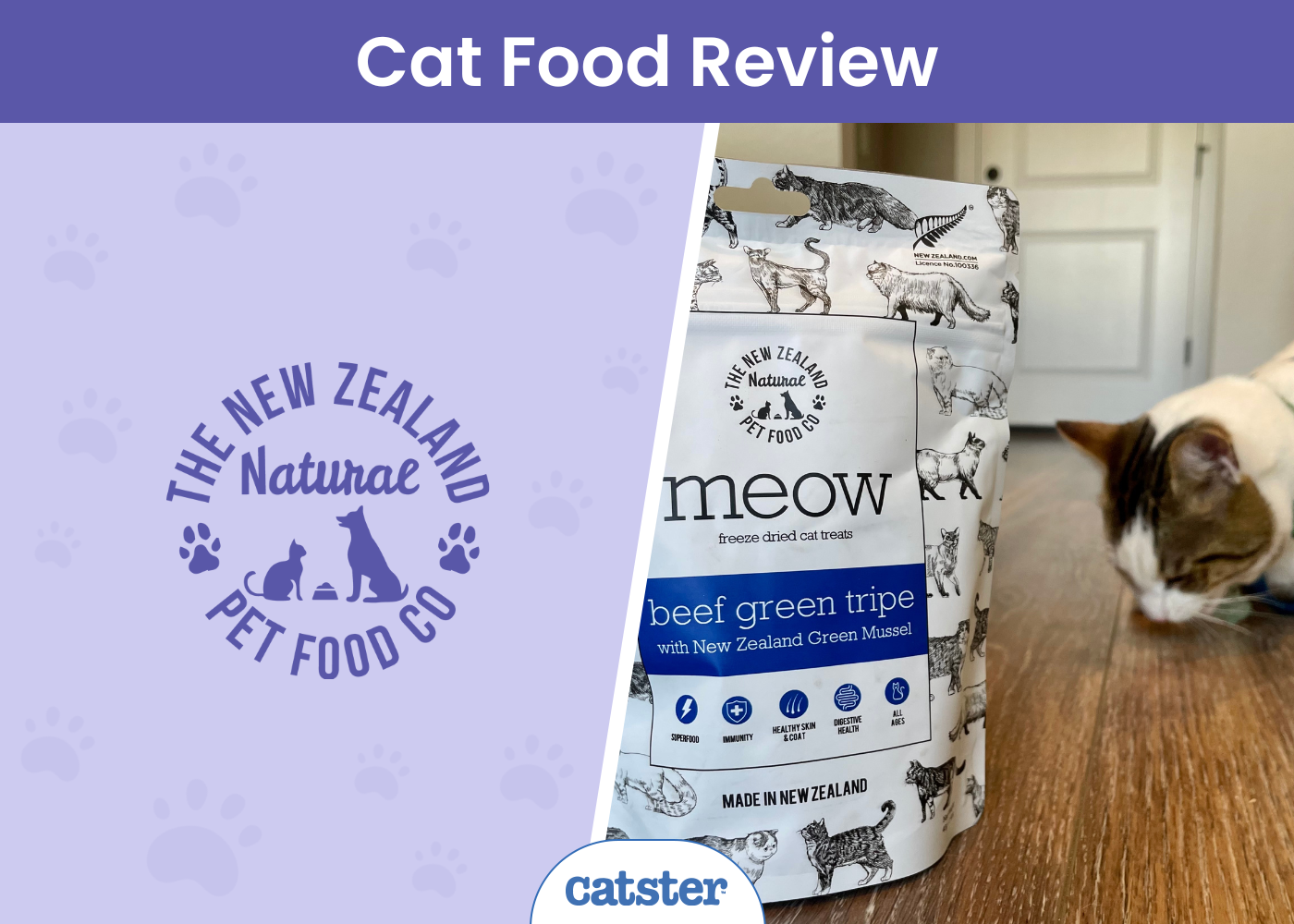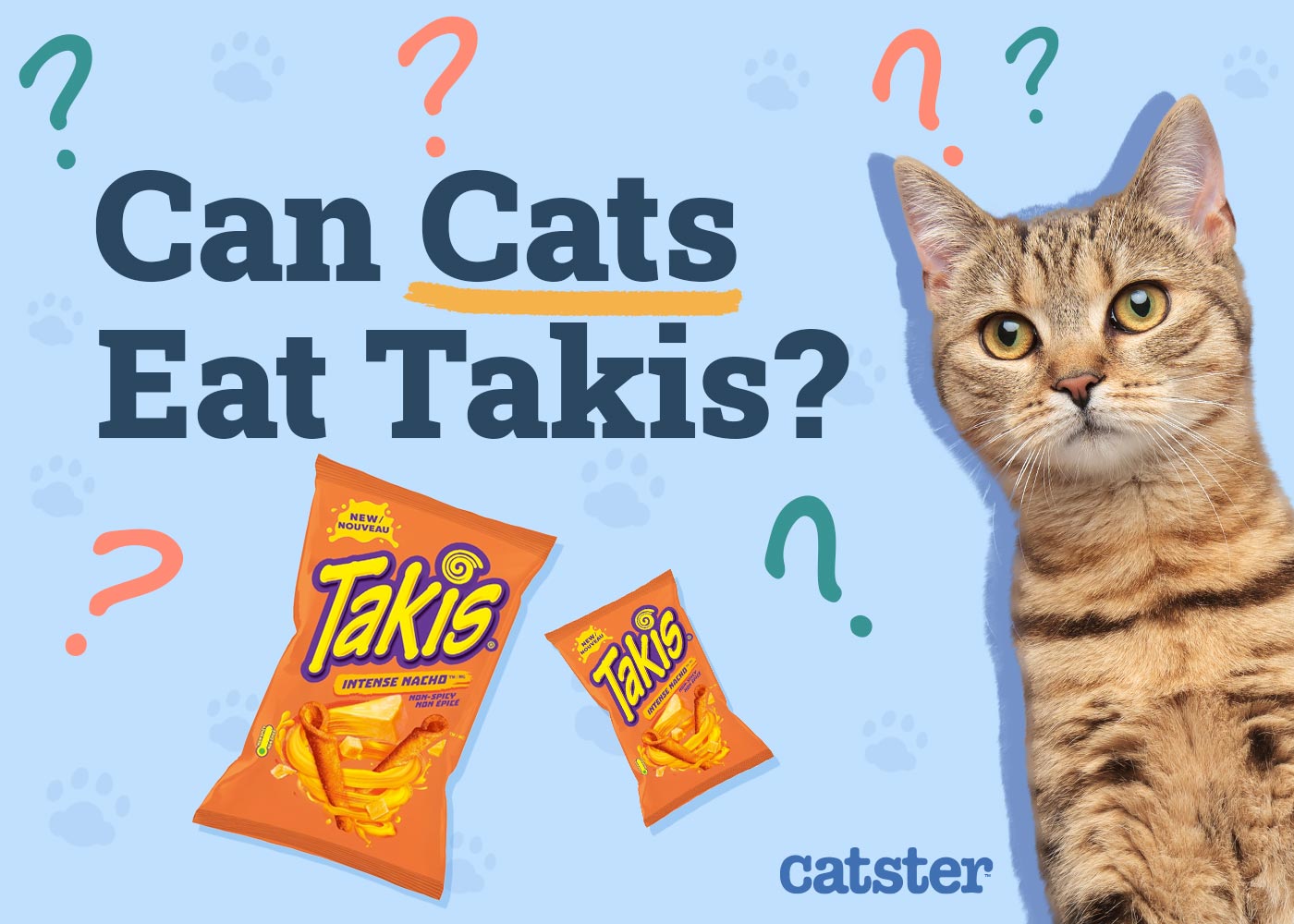Plant milk has become a popular alternative to cow’s milk and is available at grocery stores or coffee shops. With more people turning to vegan options and plant-based foods and drinks, it’s natural to wonder if they are appropriate for our feline friends too. Especially since cow’s milk is not good for cats, can they drink plant milk?
A little bit of plant milk is unlikely to cause harm to your cat, but it will not benefit its diet in any way. However, there are some ingredients added to various plant milk brands that can be harmful. You should also be aware that macadamia nut milk can definitely harm your cat.

What Is Plant Milk?
Plant milk is a term used to name a few types of plant-based milk, such as soy milk, oat milk, rice milk, almond milk, and coconut milk. All plant-based milk is made using the same process. The base material is soaked in water for a few hours to soften it up and is ground into a pulp using a blender and then strained.
The result is mostly water with a bit of the plant base material; for most brands, only 10% of it is made up of the plant material. Many companies add extra vitamins, minerals, flavors, and sugar to improve the taste.
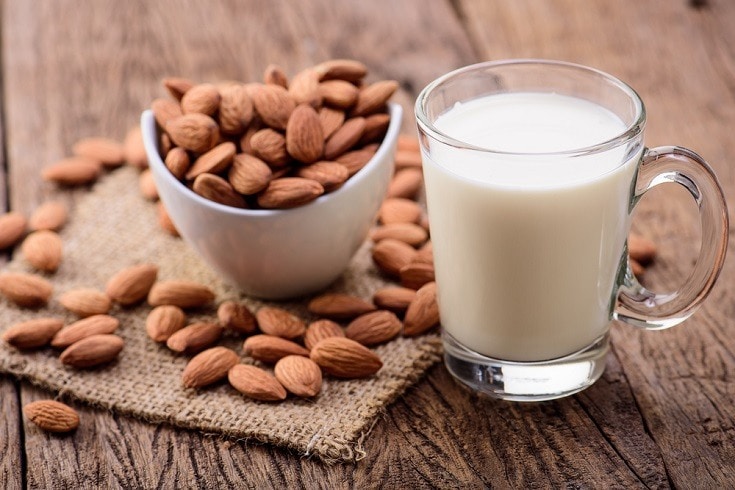
Can Cats Drink Plant Milk?
Plant-based milk is relatively safe for cats because it is lactose-free and typically lower in fat and calories. However, that doesn’t mean that you should give your cat plant milk. A little plant milk should be fine, but giving it to them every day is not a good idea. The general rule of thumb is to not feed our pets human foods, and when it comes to plant milk, there are a lot of added ingredients that are not beneficial to your cat. It also depends on the plant-based material, as some are safe for cats while others should be avoided.
- Nut milk: You can make nut milk with any type of nut, but the most common are almonds and macadamias. Some nuts are potentially very dangerous for cats, namely macadamias. Macadamia nut milk should be kept away from cats as they can cause vomiting, tremors, hypothermia, and lethargy. Walnuts can also be poisonous due to mycotoxins. Almond is probably the most popular nut milk. While almonds aren’t toxic to cats, they shouldn’t eat them. A small amount of almond milk will likely not harm your cat, but the low protein and high-fat content won’t benefit your cat either.
- Oat Milk: Oat milk is generally safe for your cat but in moderation. While it won’t provide any nutritional value, it won’t cause harm if your cat has a few licks. Even though oat milk doesn’t contain lactose, your cat might still object to it, so watch for any signs of stomach upset.
- Soy Milk: Commercial pet meals frequently contain soy as an ingredient. Although it’s one of the most common allergens in dogs, there isn’t any proof that it’s the same in cats. In moderation, soy milk is safe for cats, but you should watch for any adverse effects.
- Rice Milk: Rice isn’t something that cats would typically eat in the wild, so there is no need for it to be a part of their diet. A little bit of rice milk shouldn’t cause your cat any harm, but that also doesn’t make it suitable.
- Coconut milk: Despite not being toxic to cats, coconut milk is incredibly high in fat and calories. Coconuts are high in plant proteins, which are difficult for cats’ digestive systems to process. A small amount of coconut milk may be okay for your cat, but it’s best to keep it out of their bowl.
Besides the plant material used to make plant milk, other ingredients need to be factored in. Plant milk usually has additional ingredients to improve the taste, so it is essential to check the ingredient label.
Plant milk adds unneeded calories to your cat’s diet and can be high in fat, carbohydrates, and sugar. These extra calories can lead to weight gain and may cause gastric upset in cats. Furthermore, some plant milk includes xylitol, which can cause liver disease and blood clotting disorders.
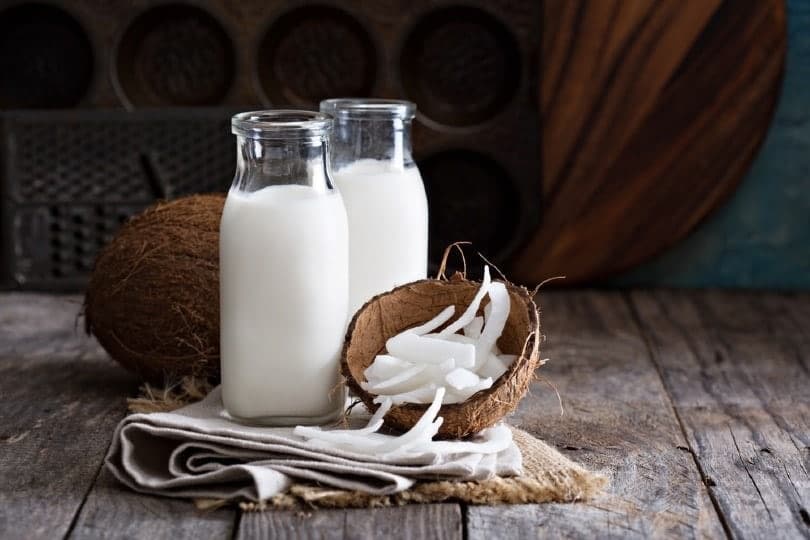

Frequently Asked Questions
Can Kittens Have Plant Milk?
For the first 3–4 weeks after birth, newborn kitties should only consume breast milk. The only nutritious option for foster kittens separated from their mothers is a milk replacement formula. Kittens should not be given cow or goat’s milk as it can upset their tummies, and nut milk should not be given to kittens at all.
Like babies, kittens have extremely sensitive stomachs, and feeding them plant milk full of sugar and other additives will surely give them diarrhea.
What Kind of Milk Can Cats Drink?
Lactose intolerance is common in cats, so it is advised not to feed milk to cats because it may result in indigestion. Even though milk is rich in animal protein and fats, feeding it to cats has no real nutritional benefit. If you want to treat your cat, they will be more than happy with tasty, high-quality cat food, and they will be most appreciative of a small piece of chicken, turkey, beef, or fish.

Conclusion
The image of a cat lapping up milk because it’s good for them is an old wives’ tale, and the truth is that it is not good for them. That is the same for plant milk. No plant milk will benefit your cat’s health, and while a small amount won’t harm your cat, it’s best to just keep it out of their bowl. If you choose to go plant-based in your diet, that’s okay, but don’t make the same choices for your cat.
Featured Image Credit By: Sea Wave, Shutterstock

